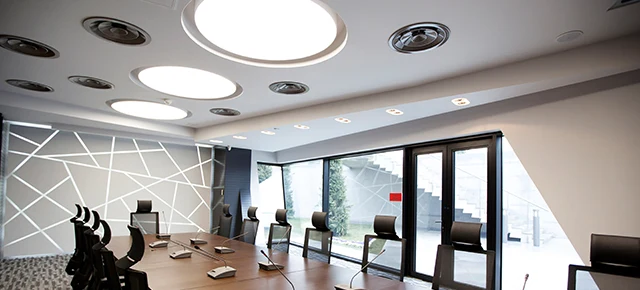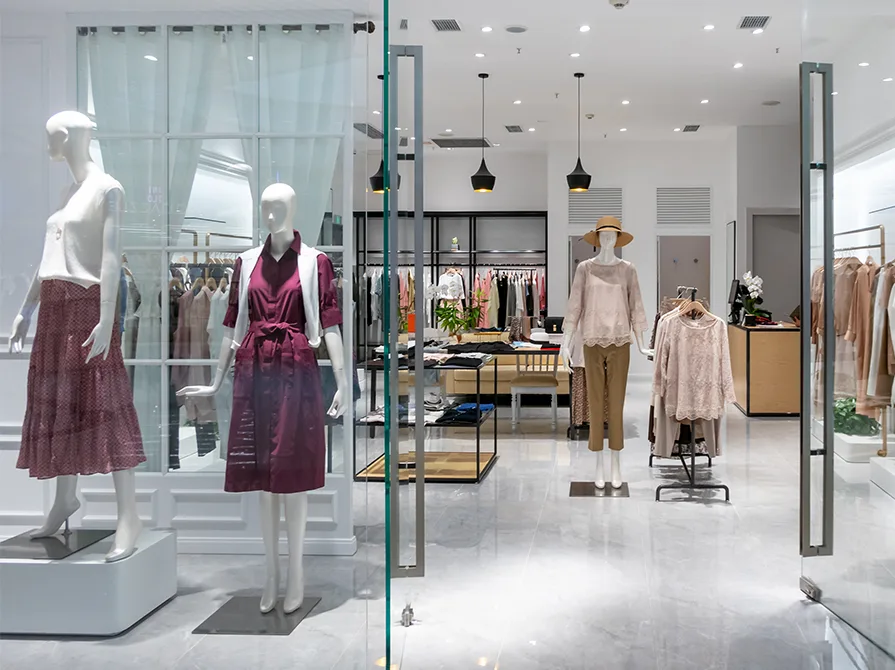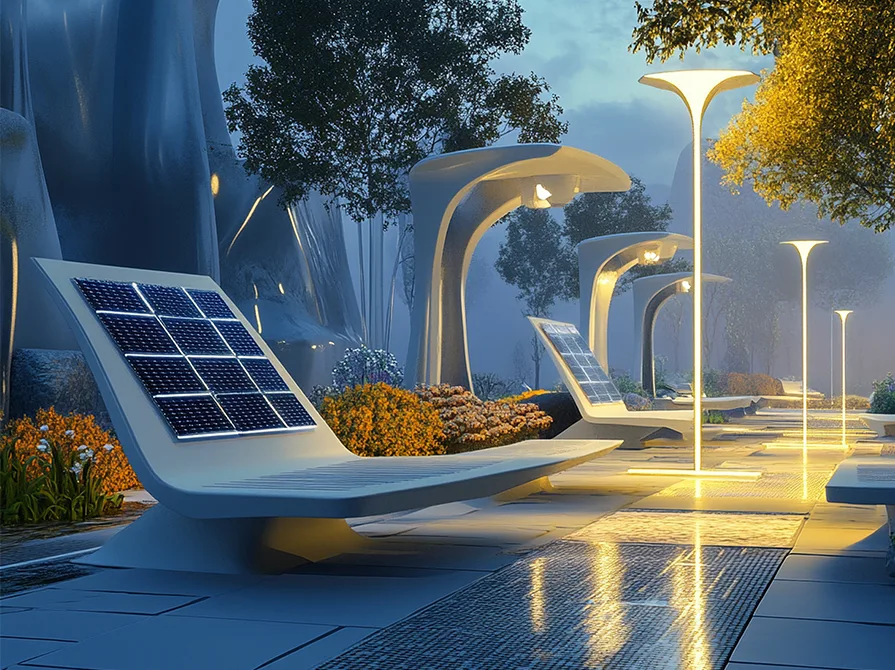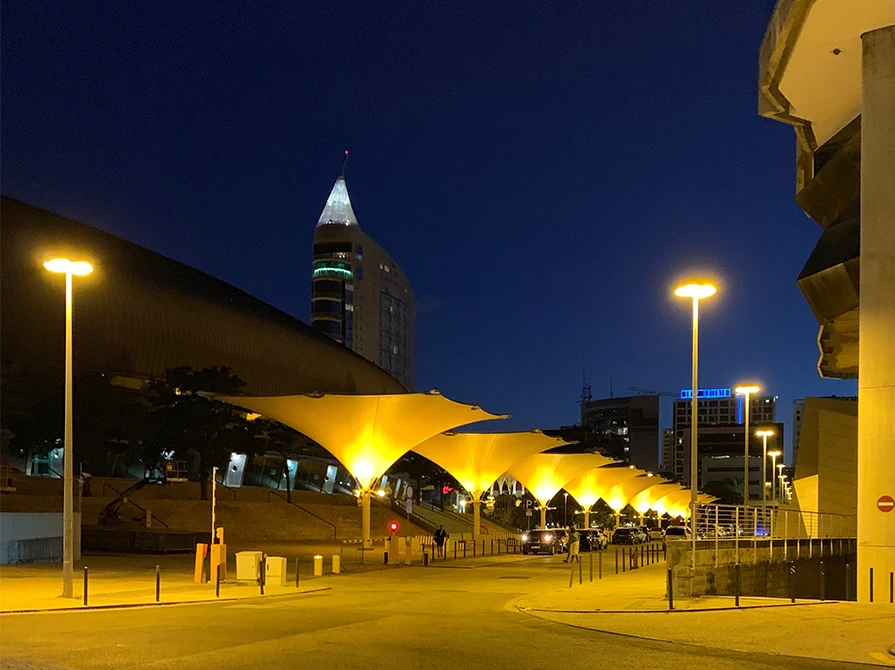


Open office workspaces have become a ubiquitous feature in modern corporate environments, fostering collaboration, communication, and a sense of community among employees. However, creating an effective lighting design in such spaces comes with its own set of challenges. This blog will delve into the specific lighting challenges faced in open office workspaces and explore innovative solutions to ensure a well-lit, comfortable, and productive environment for all.
Open office layouts represent a departure from the cubicle-centric designs of the past, embracing a more fluid and inclusive environment. The ethos driving these designs is to enhance communication, teamwork, and the overall employee experience. The absence of high partitions and closed-off spaces encourages a free flow of ideas, nurtures a sense of community, and reflects the evolving nature of work in the 21st century.
This paradigm shift in office architecture, while fostering collaboration, presents a canvas of complexity when it comes to creating a harmonious lighting environment. The vast, unobstructed spaces, often filled with natural light from large windows, demand strategic lighting solutions to maintain comfort, productivity, and visual appeal.
Challenge:
Open office layouts often involve the extensive use of computers and digital devices. The abundance of screens can lead to glare issues, causing discomfort and visual fatigue for employees.
Solution:
Opt for anti-glare screens on computers and laptops to minimize reflections. Positioning desks and screens perpendicular to windows and using adjustable blinds can help control natural light and reduce glare. Additionally, consider installing task lights with adjustable angles to direct light where it's needed without causing reflections.
Challenge:
Large open spaces can result in uneven lighting levels, leading to areas that are either too bright or too dim. This inconsistency can impact both comfort and productivity.
Solution:
Implement a well-designed lighting plan that combines ambient, task, and accent lighting. Use a mix of overhead lighting, such as linear fixtures or recessed lights, to provide general illumination. Task lighting, such as desk lamps or under-cabinet lights, can be strategically placed to supplement individual work areas, ensuring uniform brightness throughout the space.
Challenge:
Open office designs often prioritize flexibility and adaptability, but this can limit the ability of individuals to personalize their lighting preferences.
Solution:
Introduce personal task lighting options that employees can control based on their needs. Desk lamps with adjustable brightness and color temperature settings empower individuals to create a comfortable and personalized workspace. Providing individual lighting controls or desk-level switches allows employees to tailor their lighting environment.
Challenge:
Overhead lighting fixtures, if not well-designed, can contribute to harsh lighting conditions and create discomfort.
Solution:
Opt for indirect or diffused overhead lighting solutions to minimize glare. Pendant lights with adjustable heights and diffusers can provide ambient illumination without creating harsh shadows or intense brightness. Using fixtures with warmer color temperatures can also contribute to a more comfortable and inviting atmosphere.
Challenge:
Maximizing the benefits of natural light while maintaining a well-lit environment with artificial lighting can be a delicate balance.
Solution:
Utilize adjustable window treatments to control the amount of natural light entering the space. Complement natural light with a layered artificial lighting scheme that includes ambient, task, and accent lighting. This allows for flexibility throughout the day, ensuring a well-lit environment regardless of external lighting conditions.
Challenge:
Open office environments often lack physical barriers, leading to increased noise levels and potential distractions. Lighting solutions need to consider both visual and acoustic comfort.
Solution:
Incorporate acoustic lighting solutions, such as pendant lights with sound-absorbing materials or acoustic panels with integrated lighting. This dual-purpose approach addresses both the visual and auditory aspects of comfort in open office spaces. Additionally, consider using task lights with adjustable angles to direct light precisely where needed, minimizing disruptions to neighboring workstations.
Smart Lighting Systems
Implementing smart lighting systems allows for dynamic control of lighting levels, color temperatures, and even individual preferences. Occupancy sensors can adjust lighting based on the presence of employees, ensuring energy efficiency. Moreover, these systems often come with user-friendly interfaces, empowering employees to personalize their lighting settings.
Biophilic Lighting Design
Integrate biophilic design principles into the lighting scheme by incorporating natural elements. This can include fixtures inspired by natural forms, dynamic lighting that mimics the changing patterns of sunlight, or even the inclusion of live plants with strategically placed lighting. Biophilic lighting not only enhances aesthetics but also contributes to employee well-being.
Flexible Lighting Zones
Create flexible lighting zones within the open office space to accommodate different tasks and preferences. Designate collaborative areas with softer, ambient lighting, while individual workstations can have adjustable task lighting. This approach ensures that employees have the flexibility to customize their lighting environment based on their specific needs.
Human-Centric Lighting
Explore human-centric lighting solutions that mimic the natural progression of sunlight throughout the day. Tunable white lighting systems can adjust color temperatures to promote alertness during the day and a calming atmosphere in the evening. This can positively impact circadian rhythms and enhance the overall well-being of employees.
Collaborative Lighting Design Workshops
Engage employees in collaborative lighting design workshops where they can provide their input on the lighting design. This participatory approach not only ensures that individual preferences are considered but also fosters a sense of ownership and satisfaction among employees.
Innovative Fixture Designs
Opt for innovative lighting fixture designs that contribute to both form and function. Modular fixtures, adjustable pendant lights, and task lights with contemporary designs can enhance the visual appeal of the workspace while providing efficient and customizable lighting.
In the dynamic landscape of open office workspaces, addressing lighting challenges is a matter of functionality and a key element in creating a conducive and inspiring work environment. By understanding and overcoming the specific challenges associated with open layouts, organizations can foster a space that promotes well-being, productivity, and collaboration among employees.
As lighting technology continues to advance, embracing innovative solutions becomes paramount. Integrating smart systems, biophilic design, human-centric lighting systems, etc can resolve current challenges and future-proof workspaces against evolving needs and expectations. Contact us to know more about how Wipro Lighting Solutions can help address various lighting challenges and smartly illuminate your open office workspace.







